TVR will present its new Griffith sports car at the London motor show (17-20 May at ExCeL) in limited-run Launch Edition form, for which prices start at £90,000.
This will be the car's first public appearance in 2018 and precedes the production of early customer cars, which are due on roads in 2019. Just 500 examples of the Launch Edition are due for production.
The Griffith, a rival to the Porsche 911, was first revealed at the Goodwood Revival last year. It's a two-seater built on an all-new platform that uses Gordon Murray’s iStream architecture. Its striking design takes inspiration from the original TVR Griffith and Tuscan but adopts more advanced aerodynamics to boost performance.
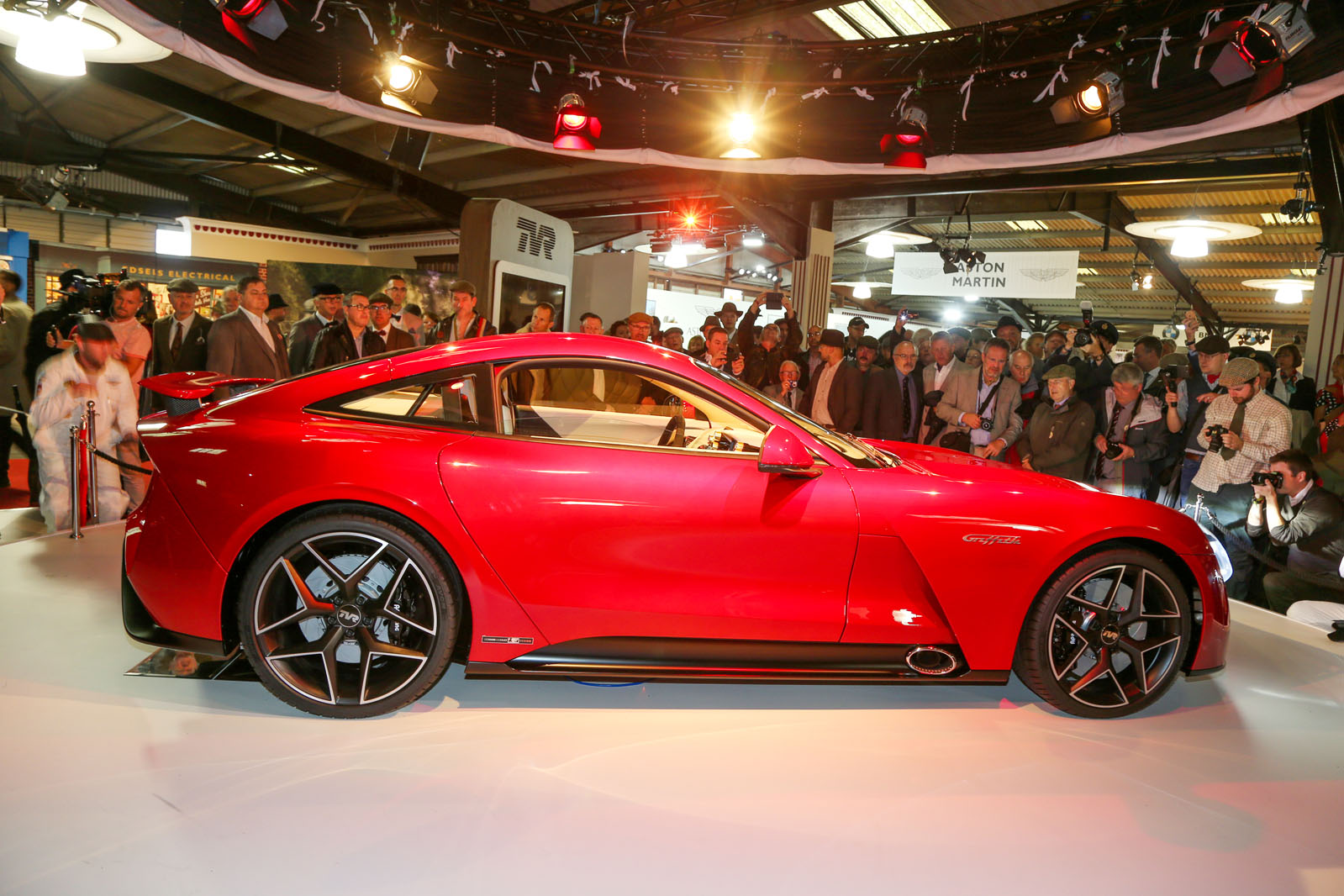
David Seesing, a designer for TVR who “works between”
 the company and Gordon Murray Design, sees maintaining the relationship with the marque’s history-making older cars as one of his most important priorities.
TVR Griffith: revisting an all-time classic British sports car
The iStream structure features inner panels of carbonfibre bonded into a steel frame to provide immense rigidity and impressive crash integrity. The bodywork is also made from carbonfibre, helping to keep the Griffith's weight down to 1250kg. The car is said to have a perfect 50:50 weight distribution.
Under the bonnet is a highly strung version of Ford’s 5.0-litre quad-cam V8 Ford Mustang engine, fettled by Cosworth to produce 500bhp. This has ensured that TVR’s previously announced target for a 400bhp-per-tonne output has been met, and enables a sub-4sec 0-62mph time and top speed of over 200mph. Drive is sent to the rear wheels through a Tremec Magnum XL six-speed manual gearbox.

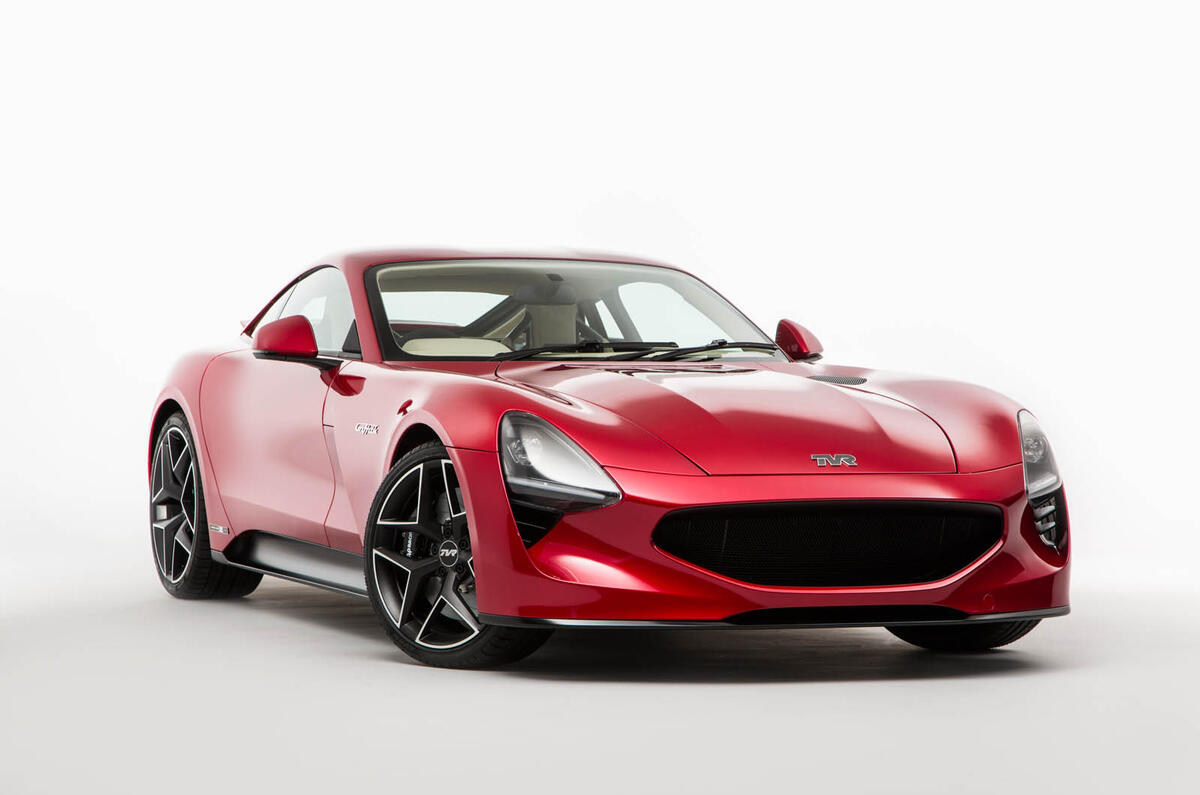
































































































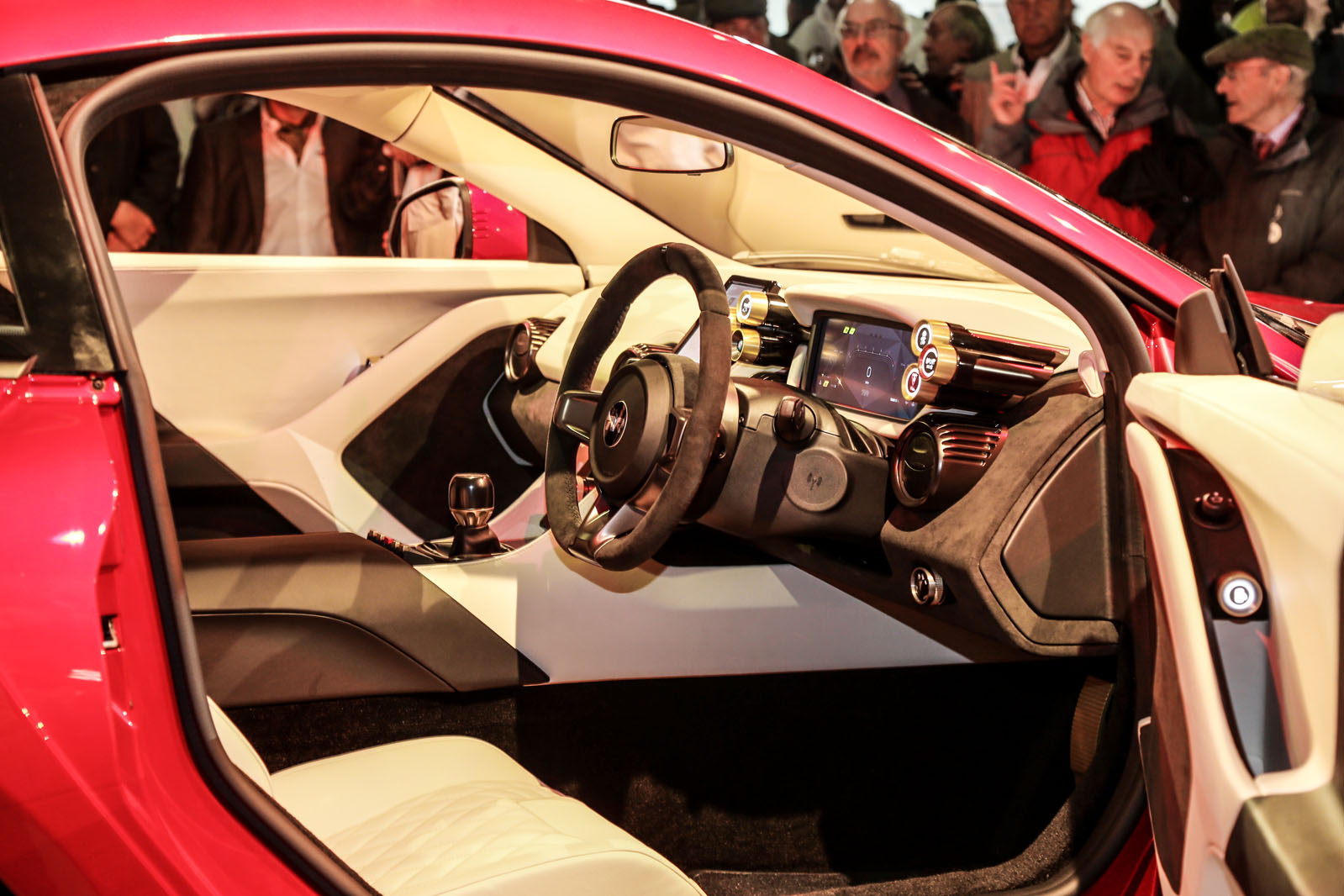
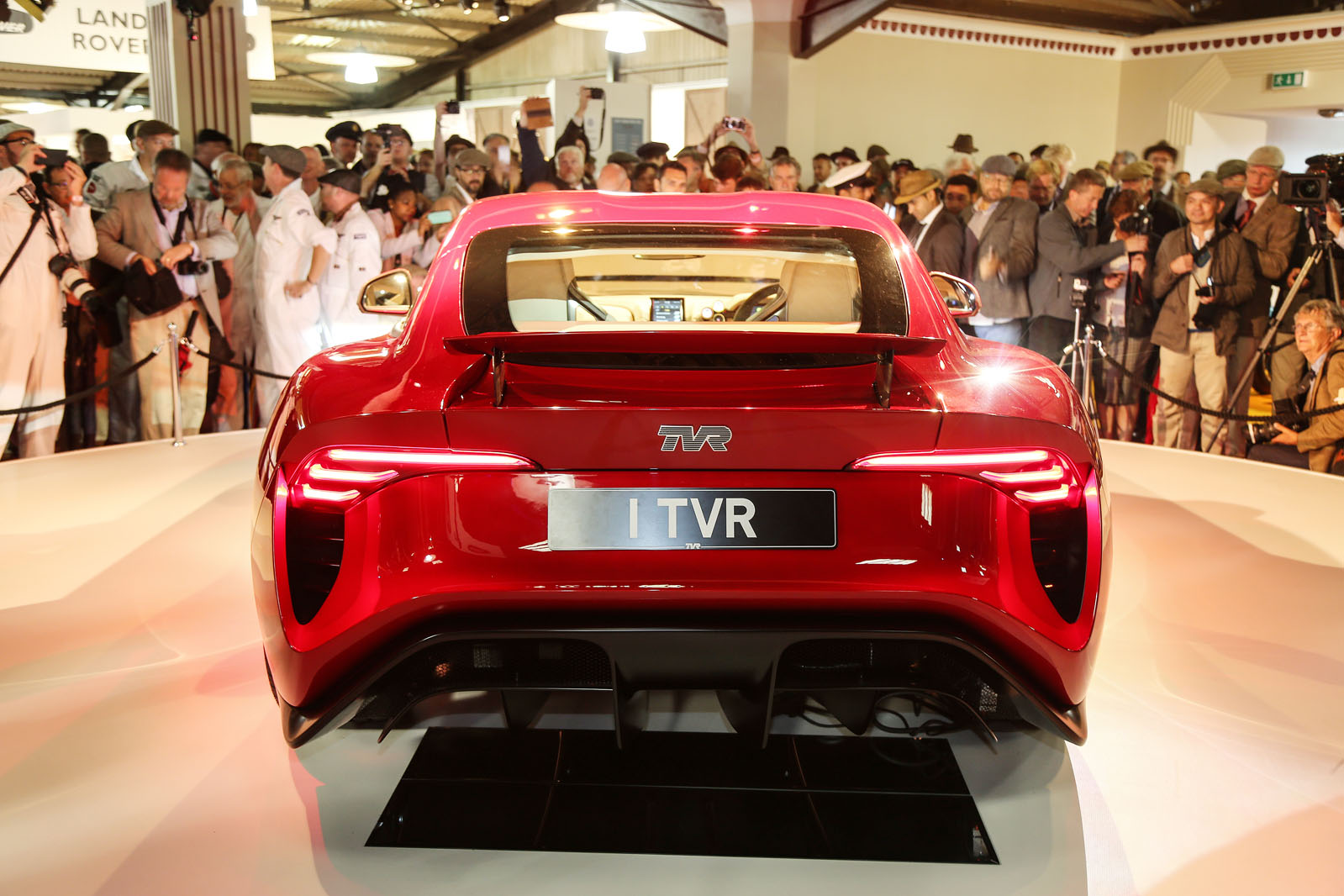

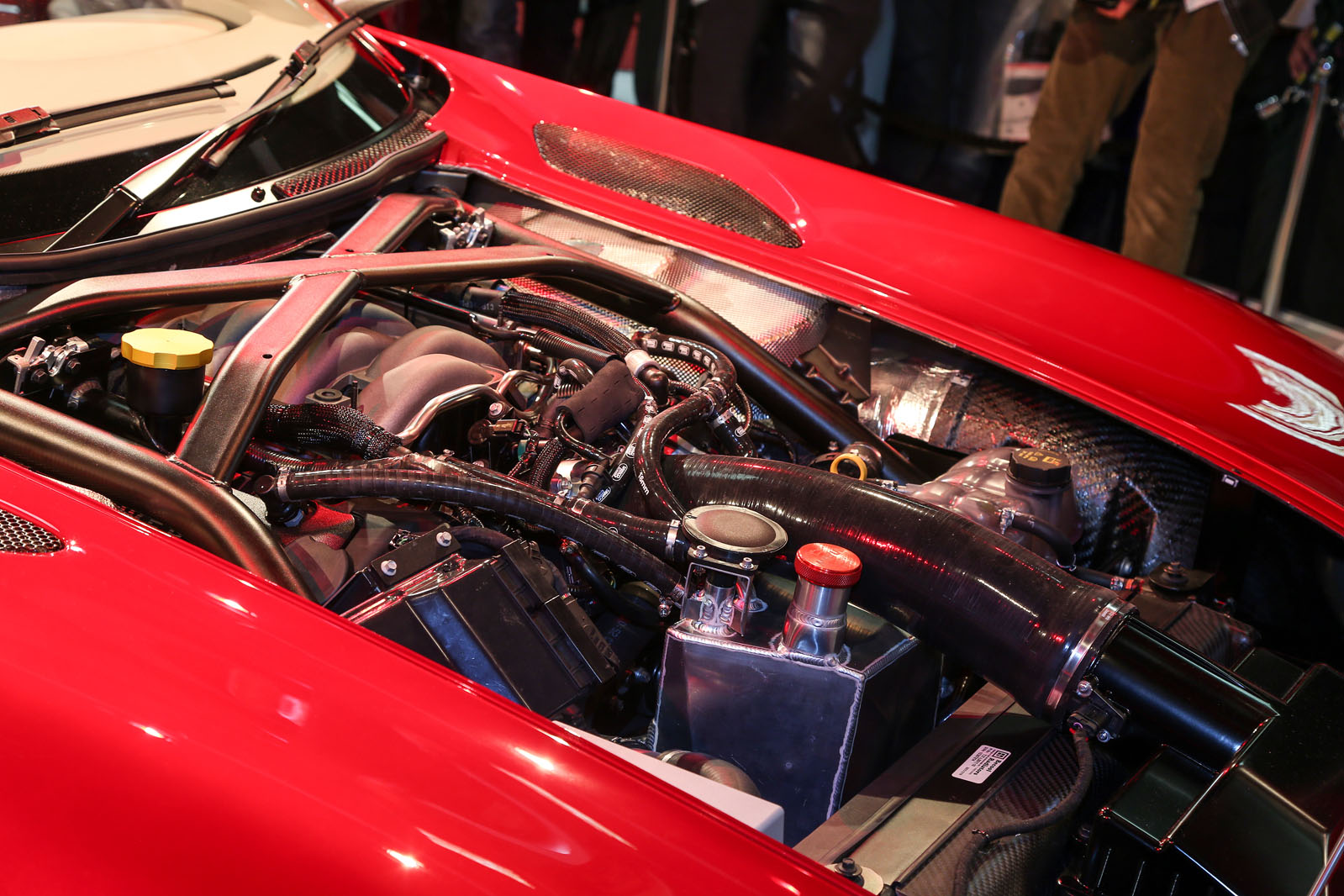
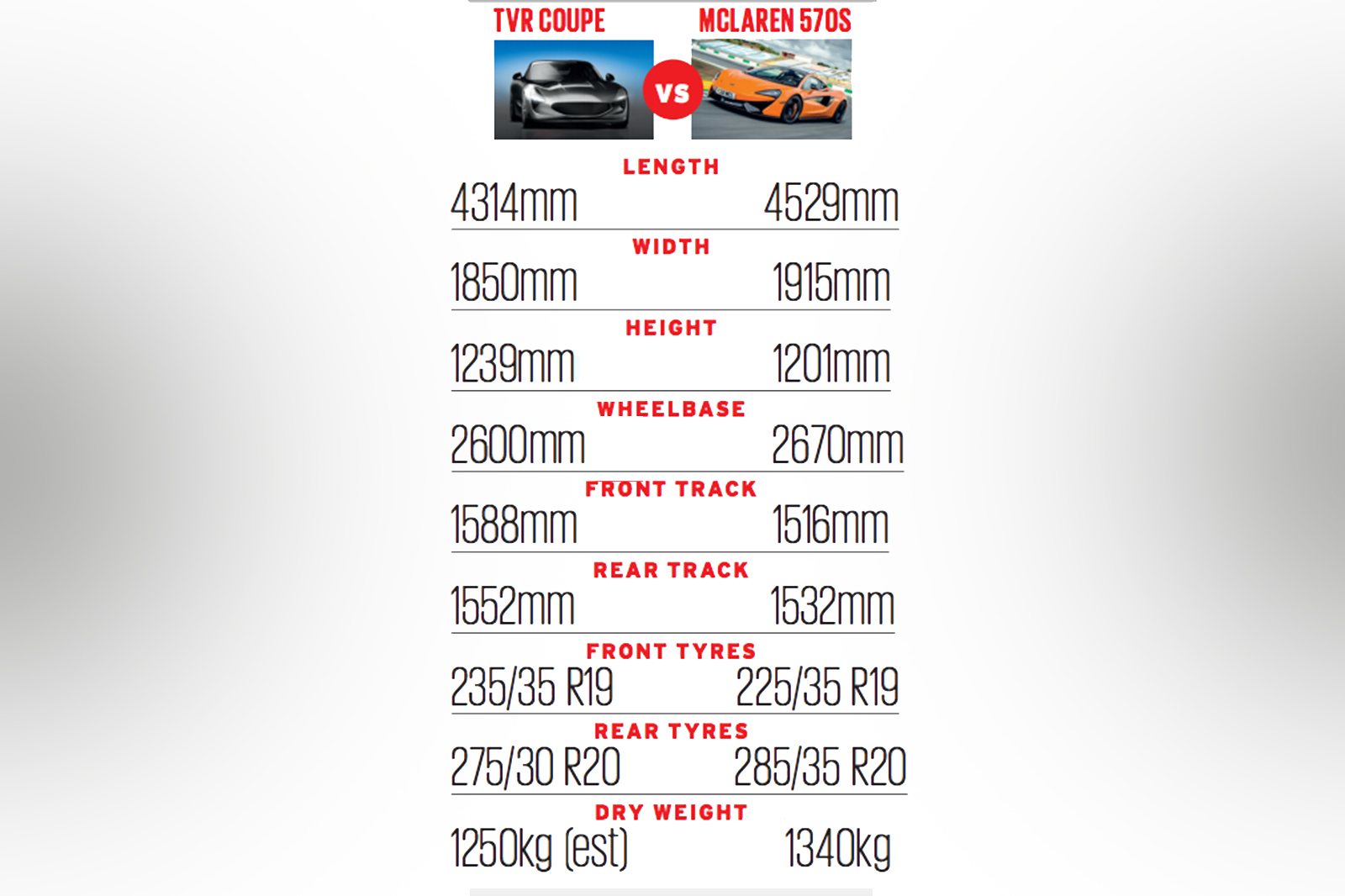






Join the debate
Add your comment
Fifty fifty....?!
Read an article in a rival Mag where they got to drive a pre production one and were impressed, but the success depends on getting this Factory up and running, personally from certain angles it looks awkward, a bit of 60’s Vixen some Tasman, no bad thing I suppose but it doesn’t same buy me...
I'll take one
With the Voodoo V8.
But.......!?
It’s nothing vastly different from before!, it’s like an update on a Tagora...